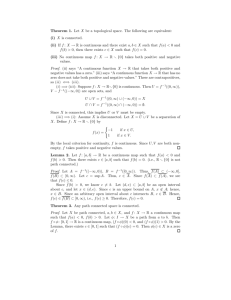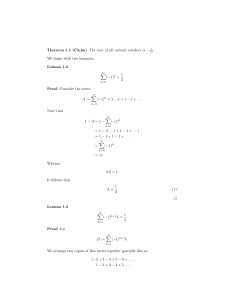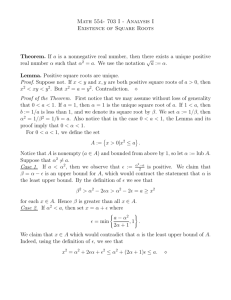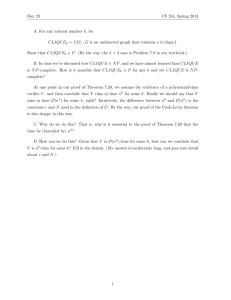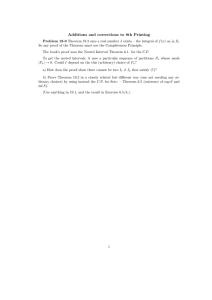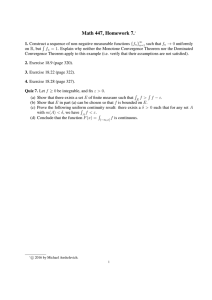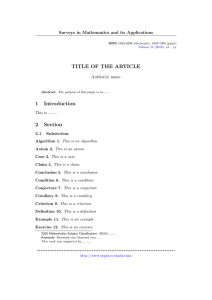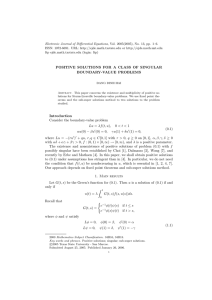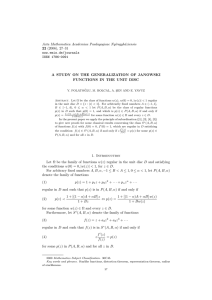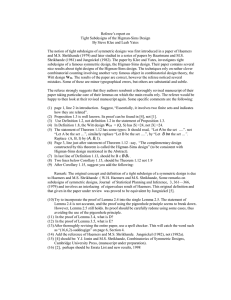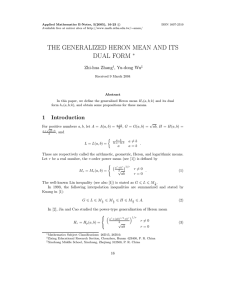Erratum to Erd˝ os-Szekeres-type theorems for monotone paths and convex bodies Jacob Fox
advertisement
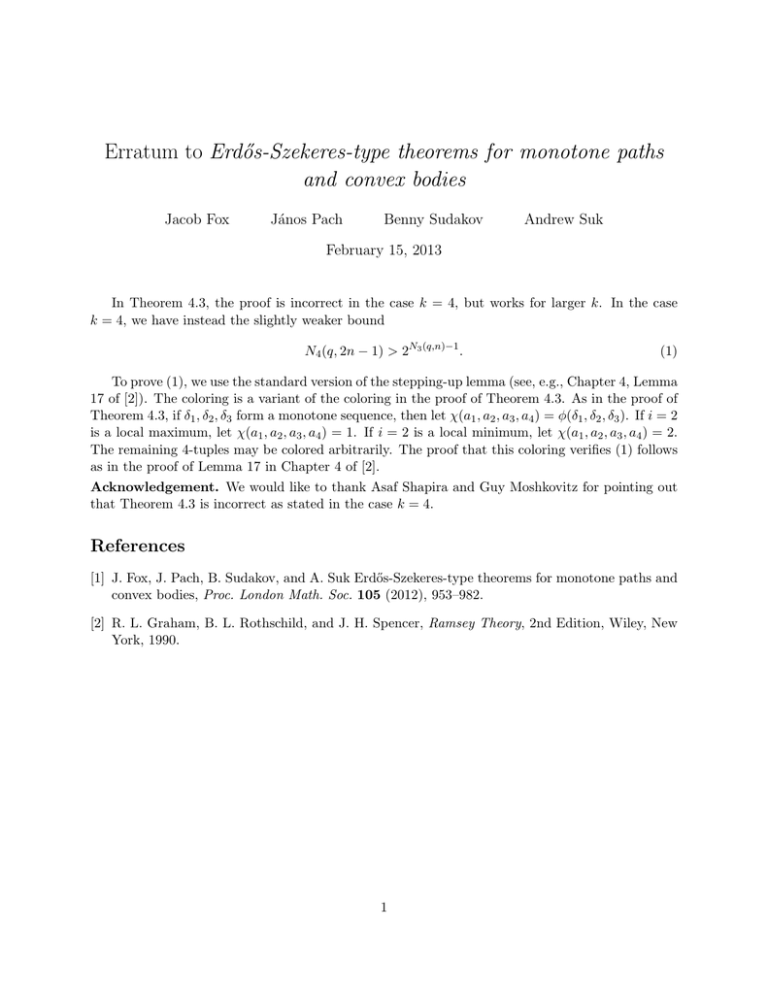
Erratum to Erdős-Szekeres-type theorems for monotone paths and convex bodies Jacob Fox János Pach Benny Sudakov Andrew Suk February 15, 2013 In Theorem 4.3, the proof is incorrect in the case k = 4, but works for larger k. In the case k = 4, we have instead the slightly weaker bound N4 (q, 2n − 1) > 2N3 (q,n)−1 . (1) To prove (1), we use the standard version of the stepping-up lemma (see, e.g., Chapter 4, Lemma 17 of [2]). The coloring is a variant of the coloring in the proof of Theorem 4.3. As in the proof of Theorem 4.3, if δ1 , δ2 , δ3 form a monotone sequence, then let χ(a1 , a2 , a3 , a4 ) = φ(δ1 , δ2 , δ3 ). If i = 2 is a local maximum, let χ(a1 , a2 , a3 , a4 ) = 1. If i = 2 is a local minimum, let χ(a1 , a2 , a3 , a4 ) = 2. The remaining 4-tuples may be colored arbitrarily. The proof that this coloring verifies (1) follows as in the proof of Lemma 17 in Chapter 4 of [2]. Acknowledgement. We would like to thank Asaf Shapira and Guy Moshkovitz for pointing out that Theorem 4.3 is incorrect as stated in the case k = 4. References [1] J. Fox, J. Pach, B. Sudakov, and A. Suk Erdős-Szekeres-type theorems for monotone paths and convex bodies, Proc. London Math. Soc. 105 (2012), 953–982. [2] R. L. Graham, B. L. Rothschild, and J. H. Spencer, Ramsey Theory, 2nd Edition, Wiley, New York, 1990. 1
